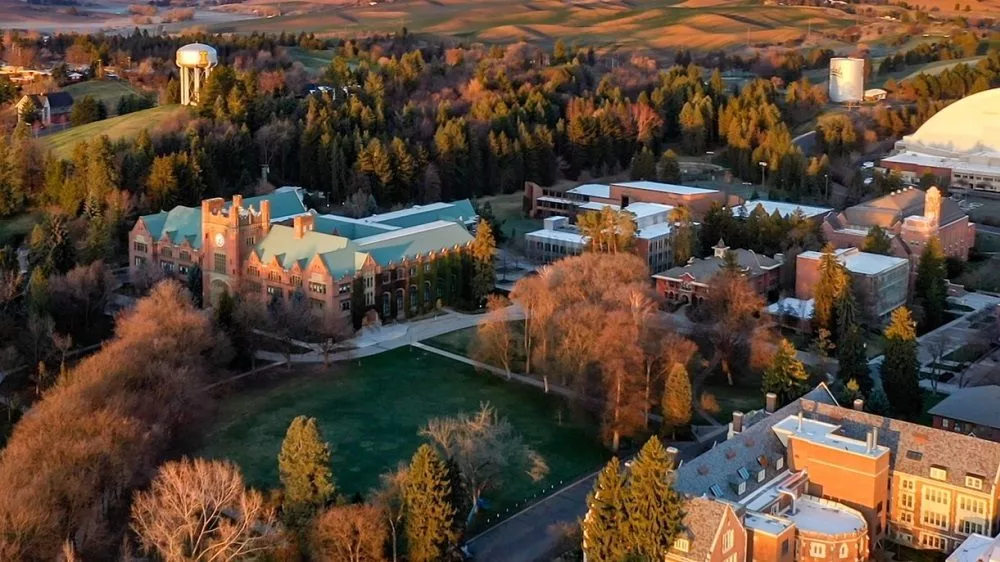(Boise, ID) – As the state’s four college and university presidents listened remotely, the State Board of Education debated a controversial policy to rein in diversity, equity and inclusion programs.
The State Board of Education has approved a controversial policy to restrict campus DEI programs.
But while Wednesday afternoon’s vote was unanimous, the discussion was punctuated by tense and emotional moments.
“I am gravely concerned that students and community members have felt devalued,” said Boise State University President Marlene Tromp, her voice breaking. “We remain committed to each and every one of them, wherever they are, wherever they’re from.”
“We are disappointed but not surprised that’s it come to this, given what has happened in other states,” said University of Idaho President C. Scott Green, conveyed what he called “a deep sense of loss and sadness” on his campus.
“I don’t know when inclusion became a four-letter word,” said State Board member Kurt Liebich, who reluctantly voted for the resolution, after predicting it would have unintended consequences on the state’s campuses.
Board forbids student centers on Idaho campuses ‘based on DEI ideology’
The resolution forbids student success centers “based on DEI ideology.” The colleges and universities are also banned from establishing “a central office, policy, procedure, or initiative” grounded in DEI.
Wednesday’s vote came after a turbulent month that thrust the State Board and Idaho’s higher ed community into the national DEI debate.
First discussed at a Nov. 21 State Board meeting, the DEI resolution sparked a swift response from campuses, and drew considerable criticism from students.
Idaho State University and Boise State University have already closed student centers geared toward women or students of color. Idaho State announced its changes on Nov. 14, a week before the first State Board hearing; Boise State’s closures came abruptly on Nov. 29. Idaho State and Boise State are opening student centers that are geared toward all students — the holistic, one-stop shop approach favored by the State Board.
But while the two universities are moving in the State Board’s direction, two board members criticized the university presidents for making the first move. The universities’ moves placed the State Board in an “awkward” position, and usurped its policymaking role, board member Bill Gilbert said.
“I’m disappointed that this was not the process that was used here,” he said.
State superintendent Debbie Critchfield leveled similar concerns.
“This is the governing body,” she said. “We weigh more heavily than anyone else, in this case.”
Tromp and Idaho State University President Robert Wagner said their universities had been working on their changes for months. And Wagner said he saw a chance to make a change on his terms and timetable — and not under the pressure of a deadline from the Legislature.
“I felt the imperative,” Wagner said.
The proposed State Board policy, and the Boise State and Idaho State shutdowns, drew a flurry of feedback.
The State Board also received more than 700 student comments on the DEI resolution. As Idaho Education News first reported Monday, most commenters opposed the State Board proposal.
State Board Executive Director Joshua Whitworth said 80% of the commenters criticized the DEI resolution. But he tried to put the comments into perspective, pointing out that 44,000 students attend the state’s four-year schools.
“It doesn’t mean some students won’t feel disenfranchised,” Whitworth said. “That also doesn’t make it wrong to make changes.”
Wednesday’s State Board votes — on the DEI resolution, and companion resolutions on freedom of expression and campus governance and faculty reviews — get out ahead of the 2025 Legislature, which convenes in 19 days. A House-Senate task force has held two meetings to discuss DEI programs, and it is planning to meet again during the first week of the session. The task force has not floated any specific proposals.
Wednesday’s votes also put the two- and four-year schools on a deadline: They must make over their student success programs by June 30.
And that might mean different things at different universities.
President Cynthia Pemberton said Lewis-Clark State College will continue to operate a center that emphasizes serving Native American and veteran students. “Our operations are not impacted by these resolutions.”
Wagner said Idaho State will lean into serving diverse students in a political climate “that makes it increasingly difficult to do.”
In a statement after Wednesday’s vote, Boise State reaffirmed its commitment to serving all students. “It is central to what it means to be a public university.”
Green said the U of I will meet the June 30 deadline. Unlike Boise State and Idaho State, the U of I has announced no changes to its student success centers. Green said the U of I will adhere to the new State Board directive, but not without some hiccups.
“This is a pretty big shift,” he said. “It will take us some time to fully meet the needs of our students.”
Other Idaho State Board of Education business
Boise State lawsuit. Boise State has the State Board’s green light to join a lawsuit against its soon-to-be former athletic conference.
The lawsuit centers on “exit fees” the Mountain West Conference hopes to extract from Boise State and other Mountain West rivals, who are planning to defect to a rebuilt Pac-12 conference. Colorado State University and Utah State University filed a lawsuit Monday; Sports Illustrated reported that the universities are calling the $19 million to $38 million exit fees “invalid and unenforceable.” (In a separate, prior lawsuit, the Pac-12 pegged the exit fees at about $20 million per school.)
The State Board gave Boise State permission to join the Colorado State-Utah State lawsuit, but it was a roundabout process.
The board discussed the lawsuit Wednesday morning in a closed-door, executive session. Shortly after that, the State Board endorsed the lawsuit without any public discussion. The board’s agenda listed only an item on Boise State “athletic conference affiliation,” and the 1,404-page packet for Wednesday’s meeting contained no information on the topic.
After EdNews asked the State Board about the matter, the board declared a do-over. After the board’s lunch break, Whitworth briefly explained the issue in open session and referenced the morning’s executive session. Then the board voted, again unanimously, to allow Boise State to join the lawsuit.
Idaho State master plan. The State Board unanimously approved an update to Idaho State’s master plan — a multiyear strategy for the university’s main campus in Pocatello and satellite campuses in Meridian and Idaho Falls.
While the plan lays out more than a decade’s worth of projects, Idaho State President Robert Wagner says he will push for one top priority during the 2025 session. He wants to secure state funding for a 100,000- to 150,000-square-foot facility to replace the aging life sciences building in Pocatello. The new building would provide a hub for life and health sciences studies at the heart of Idaho State’s academic mission.
The new life sciences building “is the first domino that needs to fall,” Wagner said Wednesday.
This story originally appeared on Idaho Capital Sun.





